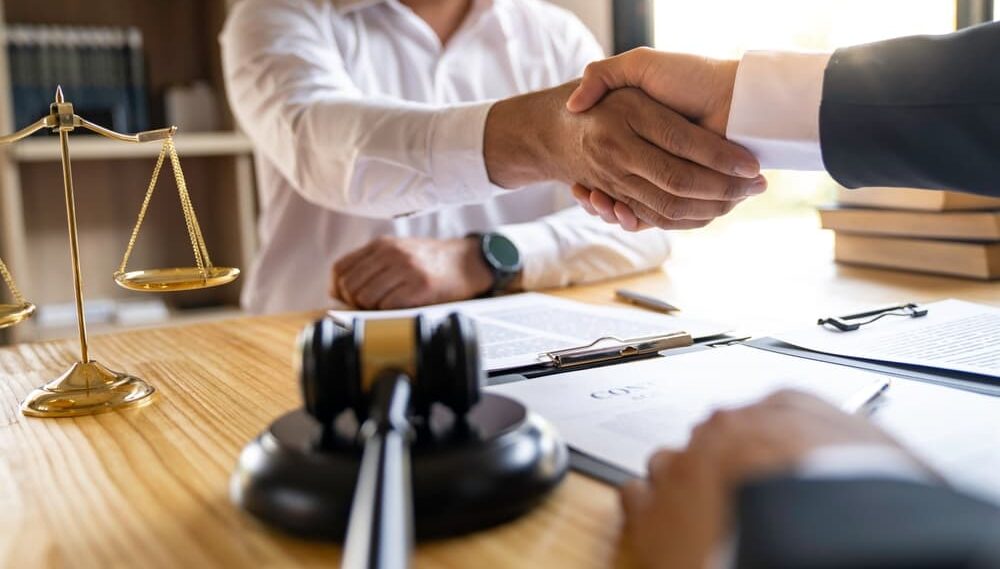
After a motorcycle accident, you might deal with injuries, medical bills, and insurance hassles. It’s a challenging time, and you may wonder how to protect your rights and seek the compensation you need. This is where a motorcycle accident lawyer comes in.
Legal Guidance and Advice
You might be uncertain about your rights and what steps to take after the accident. A motorcycle accident lawyer steps in to shed light on your rights and responsibilities. They’ll explain in simple terms what you’re entitled to under the law.
Demystifying Legal Jargon
Legal proceedings often come with their own jargon and complexities. A skilled attorney acts as your translator, breaking down the legalese into plain language that’s easy to grasp. You won’t need a law degree to understand the process; your lawyer will clarify everything.
The Roadmap Ahead
You might wonder, “What’s next?”
A lawyer provides you with a roadmap outlining the steps you need to take. They’ll discuss the sequence of events, from gathering evidence to dealing with insurance companies and preparing for possible legal action.
Insurance Regulations Unraveled
Different insurance policies, clauses, and adjusters can make your head spin. Your lawyer will be your insurance guide, explaining your policy details and ensuring you’re not taken advantage of during negotiations.
Statutes of Limitations Clarified
One of the most important aspects of your claim is understanding statutes of limitations. These are time limits within which you must initiate legal action. Missing these deadlines can jeopardize your case. Your attorney will make you well aware of these timelines and take timely action.
Tailored Legal Advice
Your lawyer doesn’t offer one-size-fits-all advice. They’ll assess your unique situation, considering the specific circumstances of your accident. This personalized approach ensures that your guidance and advice are tailored to your needs.
Investigation and Evidence Gathering
After a motorcycle accident, the truth about what happened can often be obscured or disputed. This is where the investigative skill of a motorcycle accident lawyer comes into play. They uncover the facts, gather evidence, and build a compelling case on your behalf.
Finding Hidden Details
Accidents can leave behind a trail of hidden details, and it’s the lawyer’s job to discover them. They begin by obtaining accident reports, an important document that outlines the initial findings of law enforcement. These reports contain information about the accident, including statements from parties involved and witnesses.
Witness Testimonies
Witnesses to the accident often hold the key to understanding what truly happened. Your lawyer will track down these people and interview them to get their firsthand accounts. Witness testimonies can provide valuable insights and corroborate your version of events.
A Picture Is Worth a Thousand Words
Photographs and videos from the accident scene can be valuable pieces of evidence. Your lawyer ensures that all available visual evidence is collected and thoroughly analyzed. This can include images of the vehicles involved, road conditions, traffic signals, and any visible injuries.
Accident Reconstruction
In complex cases, expert witnesses may use scientific methods and data to recreate the accident, helping to establish how it occurred.
Medical Records and Expert Opinions
Your lawyer will also gather and review your medical records. These records detail the extent of your injuries and your treatment. Additionally, if necessary, your attorney may consult medical experts who can provide insights into your injuries and their long-term impact.
Preservation of Evidence
Time is of the essence when it comes to evidence gathering. Evidence can deteriorate or disappear over time. Your lawyer ensures that evidence is preserved, documented, and cataloged to prevent any loss of critical information.
Building a Strong Case
All the evidence gathered serves a single purpose: to build a strong case on your behalf. The attorney uses this information to establish liability, demonstrate the extent of your damages, and prove that the other party’s negligence caused the accident.
Negotiations and Courtroom Battles
Evidence isn’t just collected for show; it’s a powerful tool during negotiations with insurance companies or in court. A compelling case supported by strong evidence can lead to favorable settlements or verdicts that provide you with the compensation you deserve.
Communication with Insurance Companies
Insurance policies are intricate documents with clauses, conditions, and legal jargon. Understanding the fine print can be difficult; this is where your lawyer’s experience comes in handy. They’re well-versed in deciphering insurance policies, ensuring you’re fully aware of your coverage and rights.
Handling Complex Negotiations
Insurance adjusters are skilled negotiators whose primary goal is to minimize payouts. When you’re up against these professionals, having your attorney handle negotiations is a game-changer. Your lawyer knows the tactics used by insurance companies and can counteract them effectively.
The Art of Valuing Your Claim
Determining the value of your claim is a delicate art. It involves assessing the full extent of your economic and non-economic damages. When calculating your claim’s worth, your lawyer will leave no stone unturned, ensuring you’re not shortchanged.
Effective and Timely Communication
Clear and timely communication is required in the negotiation process. Your attorney acts as your spokesperson, handling all interactions with insurance adjusters. They know how to present your case in the best possible light and respond promptly to any requests or offers.
Protection Against Lowball Offers
Insurance companies may initially present lowball settlement offers in hopes that you’ll accept less than you deserve. Your attorney is your shield against such offers. They’ll counter with well-reasoned arguments and evidence to demonstrate the true value of your claim.
Preventing Unfair Denials
In some cases, insurance companies may outright deny your claim. Your lawyer will challenge these denials, presenting the necessary evidence and legal arguments to prove the validity of your claim.
Focus on Your Recovery
One of the most important benefits of having an attorney handle communications with insurance companies is that it allows you to focus on your recovery. Dealing with insurers can be emotionally draining, but with your lawyer taking the lead, you can direct your energy toward healing.
Determining Liability
In the aftermath of a motorcycle accident, one of the most critical questions that must be answered is: Who is at fault?
Piecing Together the Puzzle
Accidents are like puzzles, and determining liability involves fitting the pieces together. Your lawyer begins with a comprehensive investigation, looking into the details of the accident. It includes examining the accident scene, studying witness statements, and reviewing relevant laws and regulations.
The Role of Evidence
Evidence plays a crucial role in determining liability. Your attorney ensures that all available evidence is collected, preserved, and analyzed. This includes photographs, videos, accident reports, and witness testimonies. Every piece of evidence is scrutinized to depict what transpired accurately.
Legal Arguments
Legal arguments are then made to support your claim of liability. Your attorney will present these arguments persuasively, drawing from the evidence and expert opinions to make a compelling case that the other party’s negligence was the primary cause of the accident.
The ultimate goal of this process is to build a strong case that establishes liability. Your attorney leaves no room for doubt, ensuring that the evidence and legal arguments are aligned in your favor.
Securing Compensation
Once liability is established, seeking compensation becomes a more manageable task. With a solid foundation, your attorney can negotiate effectively with insurance companies or, if necessary, take the case to court to secure the compensation you deserve.
Calculating Damages

A motorcycle accident lawyer calculates your damages, ensuring no potential claims are overlooked.
Your lawyer’s first task is to assess your damages comprehensively. It goes beyond the obvious and encompasses all aspects of your losses.
Medical Expenses
One of the most important categories of damages is medical expenses. Your attorney reviews your medical records, bills, and treatment plans to calculate current and future medical costs. This includes expenses for surgeries, hospital stays, medications, physical therapy, and any ongoing medical care.
Property Damage
Damage to your motorcycle and other property is another crucial factor. Your lawyer evaluates the cost of repairing or replacing your motorcycle, riding gear, and any personal belongings damaged in the accident. Property damage extends to accessories like helmets, riding jackets, and specialized equipment.
Lost Income
If your injuries have resulted in missed work and lost income, your attorney factors in these financial losses. It includes calculating the income you’ve missed due to your inability to work and any potential future income losses if your injuries have long-term consequences.
Loss of Consortium
In some cases, damages may extend to loss of consortium, which refers to the negative impact of the accident on your relationship with your spouse or partner. Your lawyer evaluates the extent of this loss and seeks compensation accordingly.
Future Considerations
It’s not just about calculating current damages; your attorney also looks to the future. It includes estimating future medical expenses, potential lost income, and long-term impacts on your quality of life. Your lawyer aims to secure compensation covering your present and future needs.
No Fees Unless You Win
When you’re dealing with the aftermath of a motorcycle accident, financial worries can add an extra layer of stress. Fortunately, many motorcycle accident lawyers offer a solution that provides much-needed peace of mind: they work on a contingency fee basis.
This arrangement ensures you don’t have to worry about upfront attorney fees. Your lawyer’s fees are entirely contingent on one simple outcome – winning your case.
The Contingency Fee Structure
A contingency fee arrangement is essentially a partnership between you and your attorney. It means that your lawyer’s fees are contingent on the successful resolution of your case. If your lawyer fails to win, you don’t pay attorney fees. This structure aligns the attorney’s interests with yours – they only get paid when you do.
No Upfront Costs
One of the most noteworthy advantages of a contingency fee arrangement is that you don’t need to worry about paying upfront costs for legal representation. This can be a tremendous relief when dealing with medical bills, property damage expenses, and other financial burdens following an accident.
Motivation to Win
With a contingency fee at stake, your attorney is highly motivated to win your case. Their dedication to securing a favorable outcome is not just about justice – it’s about ensuring their compensation and, more importantly, yours.
Risk Mitigation
Contingency fees also mitigate the risk for you. You don’t have to fret about paying attorney fees if the case doesn’t go your way. This arrangement provides a safety net, allowing you to pursue your claim without the added stress of financial obligations.
Transparent Agreements
Your attorney will provide a clear and transparent fee agreement outlining the contingency fee structure. This document will detail the percentage of the final settlement or judgment that will go towards attorney fees. You’ll have a complete understanding of how fees will be calculated.
A Shared Goal
The contingency fee arrangement creates a shared goal between you and your attorney – to secure a successful outcome for your case. It aligns your interests and ensures that your attorney is fully invested in advocating for your rights and fighting for the compensation you deserve.
Access to Legal Representation
Most importantly, a contingency fee arrangement ensures access to experienced legal representation, regardless of your financial situation. It levels the playing field, allowing you to pursue justice without worrying about the upfront costs of hiring an attorney.
Consult a Trusted Motorcycle Accident Attorney Today

Mickey Fine, Motorcycle Accident Lawyer
A motorcycle accident lawyer can be your advocate during a challenging time. They provide valuable legal advice, handle complex paperwork and negotiations, and work to ensure you receive the compensation you deserve.
After a motorcycle accident, consult a personal injury attorney to protect your rights and secure the help you need.
During your consultation, you can tell your story and the lawyer will review any documentation you bring. They can advise whether they believe someone else should be liable for your losses and how the process works. If you feel comfortable with the lawyer, you pay nothing upfront for them to begin representing you and seeking justice.
